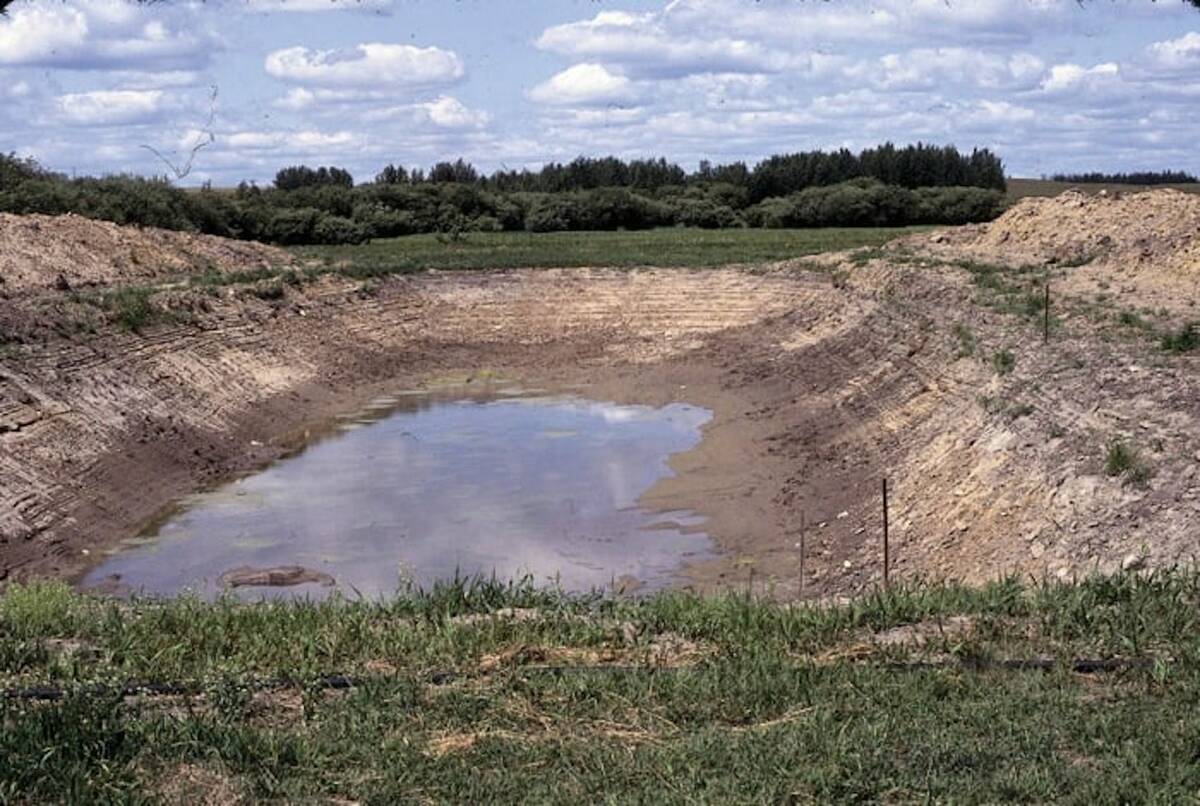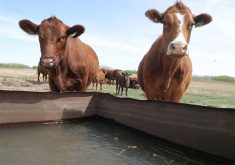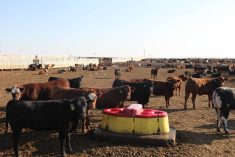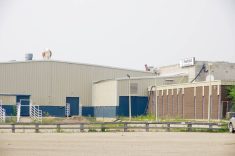RED DEER – The Brazilian meat packing giant JBS SA has failed in its bid to take over National Beef in the United States.
The failure was a disappointment because it brought with it a case-ready and premium beef division, said Chandler Keys, head of government affairs and industry affairs for JBS, based in Greeley, Colorado.
JBS bought the Smithfield Foods division last year for $565 million, which included the packing and feeding operations, giving the company a one-time feeding capacity of 1.6 million head. National Beef was part of the original takeover bid.
Read Also

Dry summer conditions can lead to poor water quality for livestock
Drought conditions in the Prairies has led to an decrease in water quality, and producers are being advised to closely monitor water quality for their animals.
The United States Department of Justice approved the Smithfield purchase last fall, but not the National Beef purchase because it would give JBS more than a third of the U.S. beef market.
While the company has built a strong presence in Europe, Australia, Brazil, Argentina and the U.S., it has not made a move into Canada.
“We don’t have a presence here with a plant and I don’t know if we ever will,” Keys told the Alberta Beef Industry Council convention Feb. 20.
However, the company is interested in continued expansion and selling more beef around the world. It is also a major pork and lamb processor.
“They are interested in where they can bring their expertise and turn things around and make a profit,” he said.
In the company’s annual report, reduced earnings for 2008 were partly due to the financial climate around the world. These also prompted the company to continue reducing costs and integrate its current acquisitions, said JBS president Joesley Batista.
Company net revenues for 2008 for the U.S. and Australian operations combined increased 23 percent to nearly $2.8 billion US, compared to $2.27 billion in 2007.
For the year, JBS revenues were $9.9 billion compared to $7.6 billion in 2007. Earnings before expenses came in at $286.6 million for 2008, compared to a loss of $128 million in 2007.

















